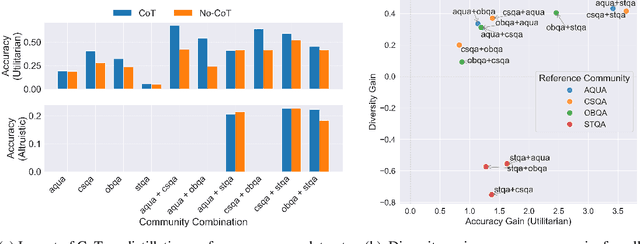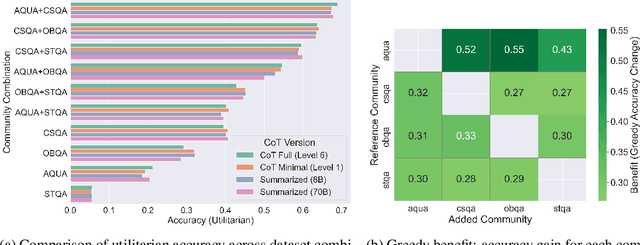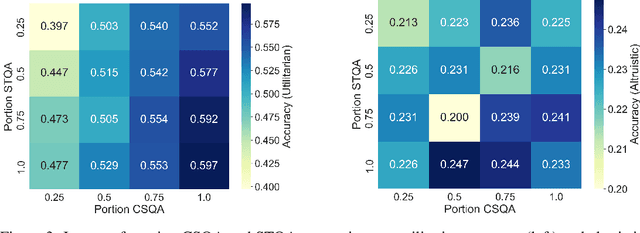Rushabh Solanki
Conscious Data Contribution via Community-Driven Chain-of-Thought Distillation
Dec 20, 2025



Abstract:The current era of AI development places a heavy emphasis on training large models on increasingly scaled-up datasets. This paradigm has catalyzed entirely new product categories, such as LLM chatbots, while also raising concerns about data privacy and consumer choice. In this paper, we consider questions of data portability and user autonomy in the context of LLMs that "reason" using chain-of-thought (CoT) traces, computing intermediate text artifacts from user input before producing a final output. We first interpret recent data privacy and portability law to argue that these intermediate computations qualify as users' personal data. Then, building on the existing framework of Conscious Data Contribution, we show how communities who receive low utility from an available model can aggregate and distill their shared knowledge into an alternate model better aligned with their goals. We verify this approach empirically and investigate the effects of community diversity, reasoning granularity, and community size on distillation performance.
Crowding Out The Noise: Algorithmic Collective Action Under Differential Privacy
May 09, 2025Abstract:The integration of AI into daily life has generated considerable attention and excitement, while also raising concerns about automating algorithmic harms and re-entrenching existing social inequities. While the responsible deployment of trustworthy AI systems is a worthy goal, there are many possible ways to realize it, from policy and regulation to improved algorithm design and evaluation. In fact, since AI trains on social data, there is even a possibility for everyday users, citizens, or workers to directly steer its behavior through Algorithmic Collective Action, by deliberately modifying the data they share with a platform to drive its learning process in their favor. This paper considers how these grassroots efforts to influence AI interact with methods already used by AI firms and governments to improve model trustworthiness. In particular, we focus on the setting where the AI firm deploys a differentially private model, motivated by the growing regulatory focus on privacy and data protection. We investigate how the use of Differentially Private Stochastic Gradient Descent (DPSGD) affects the collective's ability to influence the learning process. Our findings show that while differential privacy contributes to the protection of individual data, it introduces challenges for effective algorithmic collective action. We characterize lower bounds on the success of algorithmic collective action under differential privacy as a function of the collective's size and the firm's privacy parameters, and verify these trends experimentally by simulating collective action during the training of deep neural network classifiers across several datasets.
Promoting User Data Autonomy During the Dissolution of a Monopolistic Firm
Nov 20, 2024



Abstract:The deployment of AI in consumer products is currently focused on the use of so-called foundation models, large neural networks pre-trained on massive corpora of digital records. This emphasis on scaling up datasets and pre-training computation raises the risk of further consolidating the industry, and enabling monopolistic (or oligopolistic) behavior. Judges and regulators seeking to improve market competition may employ various remedies. This paper explores dissolution -- the breaking up of a monopolistic entity into smaller firms -- as one such remedy, focusing in particular on the technical challenges and opportunities involved in the breaking up of large models and datasets. We show how the framework of Conscious Data Contribution can enable user autonomy during under dissolution. Through a simulation study, we explore how fine-tuning and the phenomenon of "catastrophic forgetting" could actually prove beneficial as a type of machine unlearning that allows users to specify which data they want used for what purposes.
 Add to Chrome
Add to Chrome Add to Firefox
Add to Firefox Add to Edge
Add to Edge